Real Property Report - California, July 2014
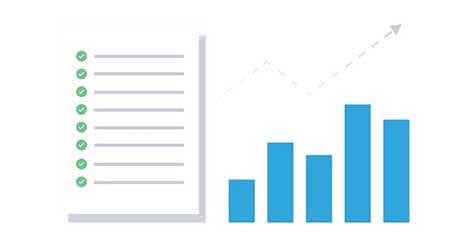
Median Prices Fall in 13 of California’s Largest 26 Counties
Year-to-Date Sales Lowest Since 2008
California single-family home and condominium sales gained 3.9 percent in July 2014 but were down 9.2 percent from July 2013. Year-to-date sales for the first seven months of the year are the lowest since 2008.
The overall decline in sales is due to several factors: the decline in affordability due to rapid price increases, the rise in mortgage interest rates, lack of affordable inventory, and the rapid decline in distressed property sales. Whereas in July 2013 25.6 percent of sales were distressed properties, in July 2014 distressed property sales comprised only 17.0 percent of the total.
“Lackluster sales volumes so far this year should come as no surprise given the fact that in many California counties houses have simply become unaffordable,” said Madeline Schnapp, Director of Economic Research for PropertyRadar. “The decline in affordability in concert with the rapid decline in lower-priced distressed properties for sale has exacted a toll on demand.”
The July 2014 median price of a California home edged up 1,100 dollars, or 0.3 percent, to 390,100 dollars, the slowest monthly increase since January 2014. On a year-ago basis, median home prices gained 7.8 percent. Driving the month-over-month price increase in July was the 4.4 percent increase in the sales volume of higher-priced non-distressed properties, which accounted for 83.0 percent of total sales. The median price of non-distressed homes was up only 0.2 percent over last year, indicating the gain in median prices was due mostly to a shift from less expensive to more expensive homes.
As the summer selling season winds down, median price increases have slowed or peaked in many of California’s largest counties. In July '13 of California’s 26 largest counties experienced monthly price declines compared to only six in April.
In other California housing news:
- Cash sales remain a significant percentage of total sales, accounting for 21.6 percent. Despite the historically high levels of cash sales, these sales have been steadily declining, down 15.9 percent, since reaching an interim peak of 36.5 percent in August 2011.
- Flip sales edged up 2.2 percent for the month but were down 36.0 percent for the year and are down 38.1 percent from the October 2012 peak.
- Negative equity continues to decline but remains elevated in California imparting negative headwinds to the real estate market. In July, more than 1.0 million California homeowners, or 12.1 percent remain underwater.
- Institutional Investor LLC and LP purchases were nearly unchanged for the month but are down 29.0 percent from July 2013. As the supply of distressed properties dwindle and prices rise, institutional investor demand has retreated due to the lower return on investment. Institutional Purchases have posted consistent monthly declines and are down 46.0 percent from their December 2012 peak. Trustee sale purchases by LLC and LPs are down nearly 79 percent from their October 2012 peak.
- Foreclosure starts, Notices of Default (NODs), fell 2.9 percent between June and July and are down 22.2 percent from July 2013. The downward trend extends a longer-term downward trend that began in March 2009. Foreclosure sales gained 7.1 percent for the month but are down 18.7 percent for the year.
“Last year’s rise in home prices and interest rates went too far, pushing homes out of reach for some,” said Schnapp. “To see prices increase further from here will require either increases in income, or easing of credit terms.“
Home Sales
Home Sales - Single-family residence and condominium sales by month from 2007 to current divided into distressed and non-distressed sales. Distressed sales are the sum of short sales, where the home is sold for less than the amount owed, and REO sales, where banks resell homes that they took ownership of after foreclosure. All other sales are considered non-distressed.
Year-over-Year Home Sales
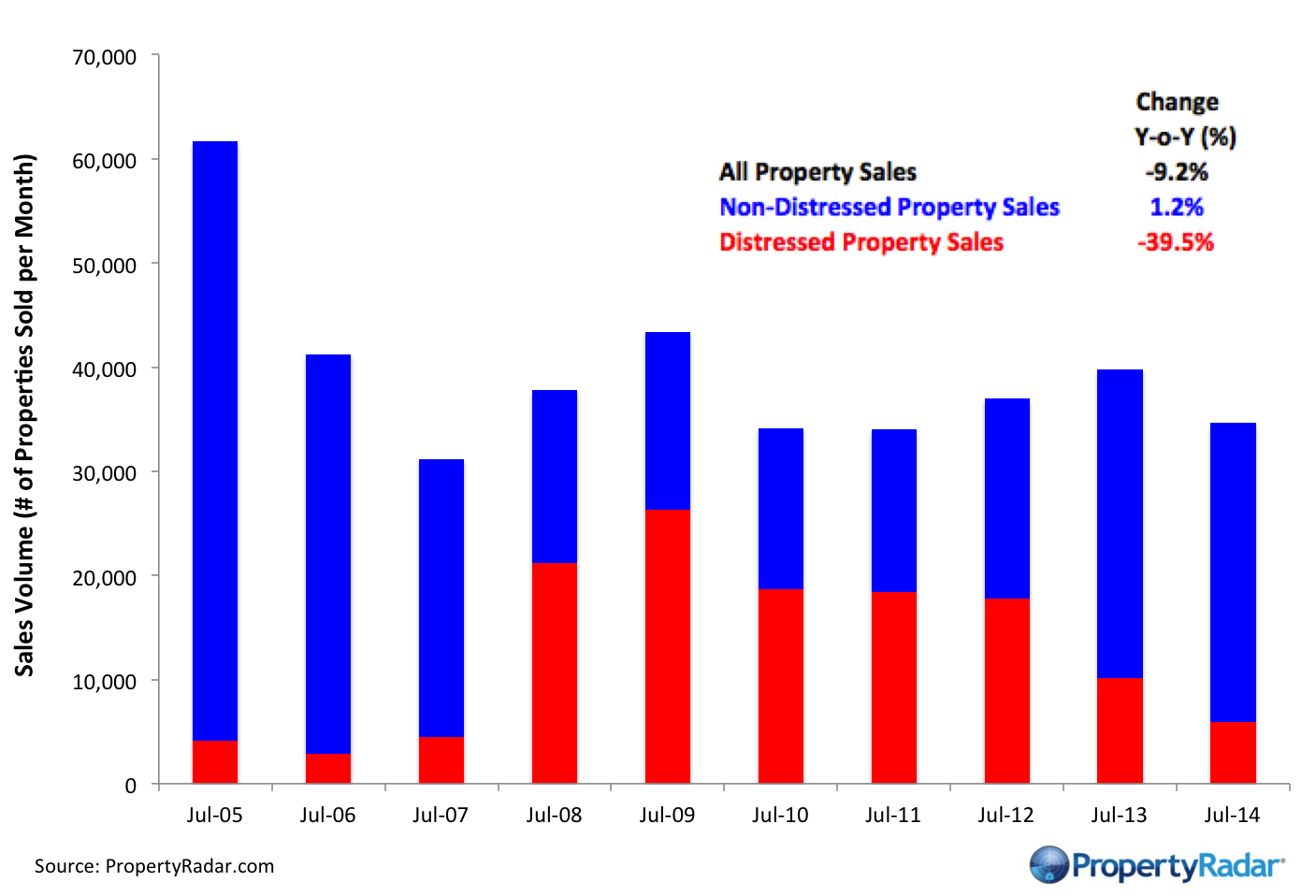
Year-over-Year Home Sales - Single-family residences and condominiums sold during the same month for the current year and prior years divided into distressed and non-distressed sales.
Median Sales Prices vs. Sales Volume
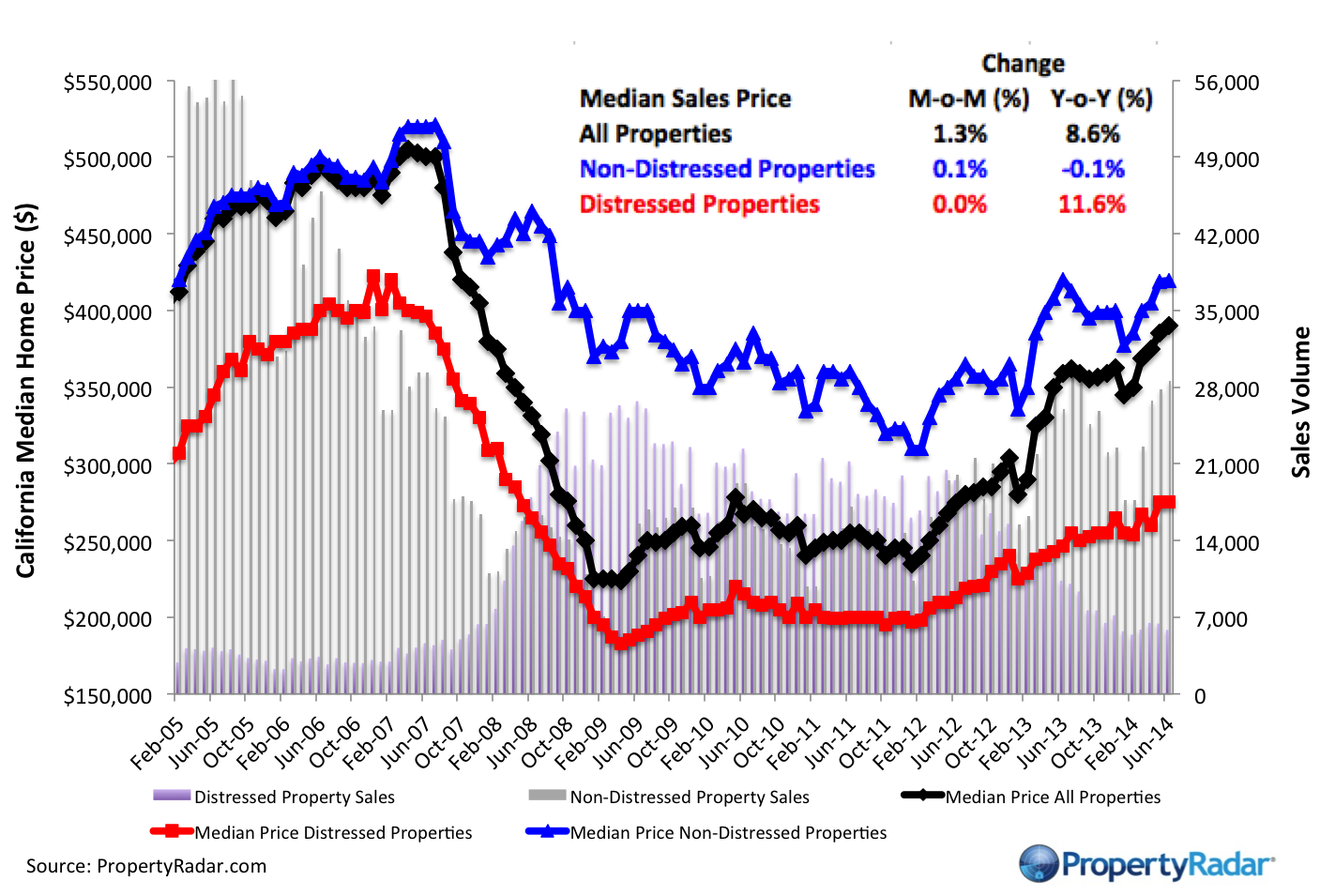
Median Sales Price vs. Sales Volume - Median sales price (left axis) of a California single-family home versus sales volume (right axis), by month from 2005 to current. Median sales prices are divided into three categories: All single-family homes (blue line), distressed properties (red line), and non-distressed properties (green line). Monthly sales volume (right axis) are illustrated as gray and lavender bars. The gray bars are distressed sales and the lavender bars are non-distressed sales.
California Homeowner Equity
California Home Owner Equity - A model estimate of California homeowners segregated into various categories of levels of homeowner equity for a given month. Homeowner numbers represent a percentage of total California homeowners.
Cash Sales
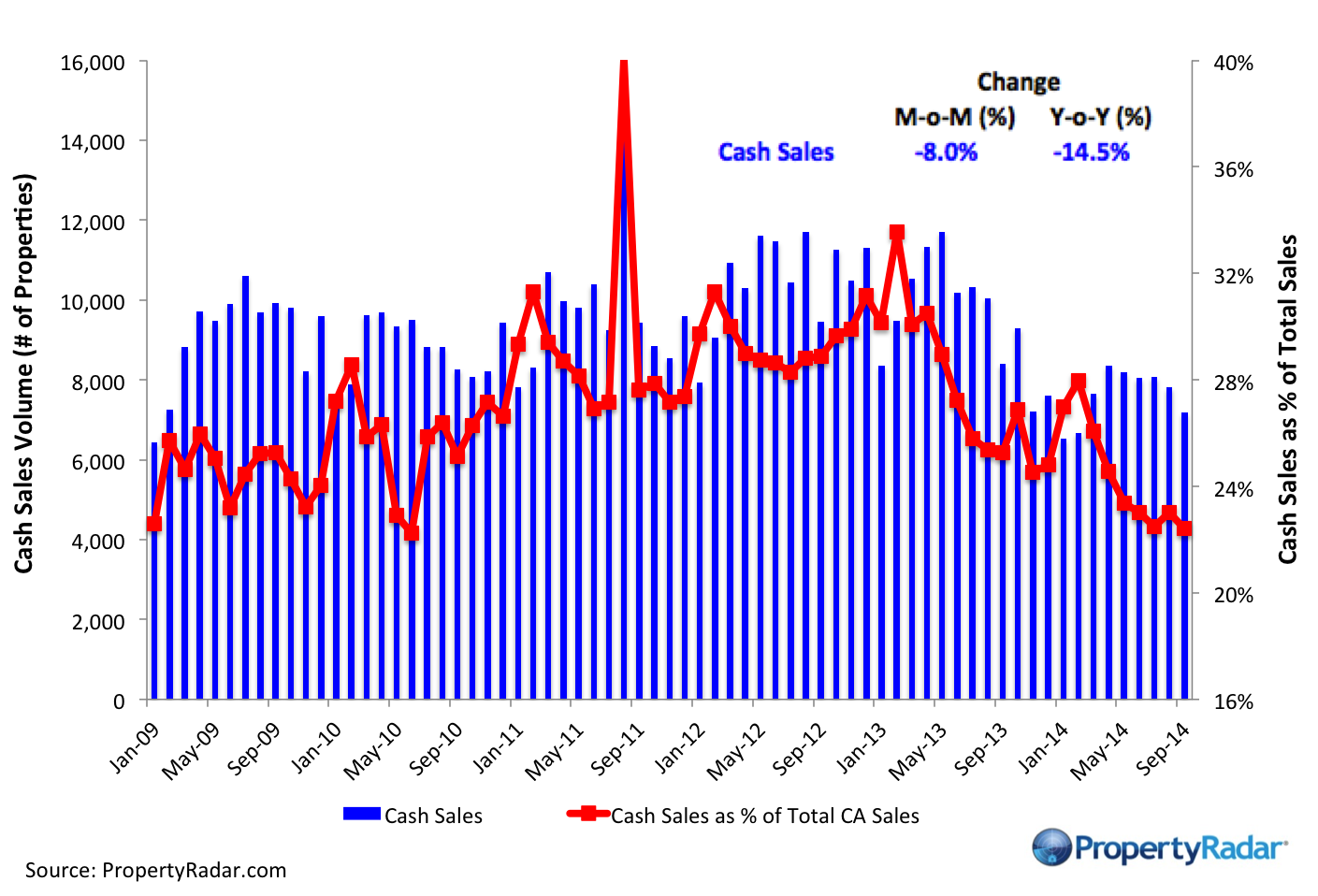
Cash Sales - The blue bars (right axis) illustrate cash sales of single-family residences and condominiums by month. The red line (left axis) illustrates cash sales as a percentage of total sales by month.
Flipping
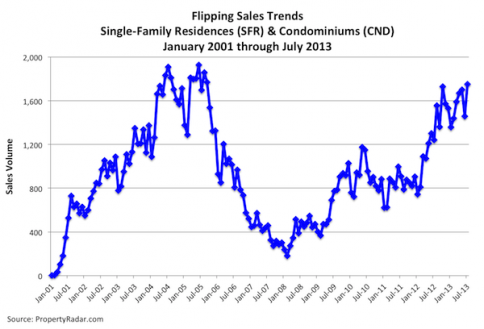
Flipping – The number of single-family residences and condominiums resold within six months.
Market Purchases by LLCs and LPs
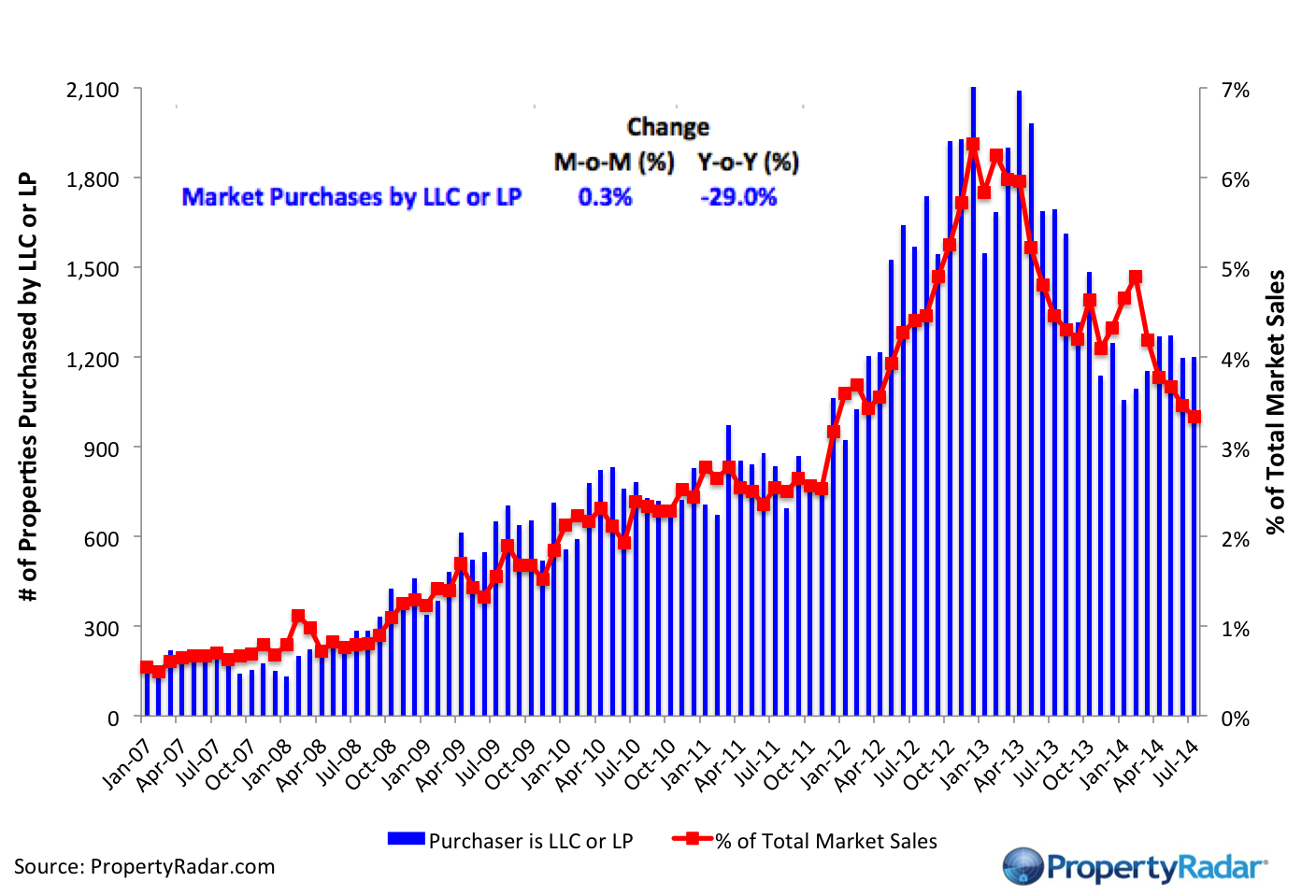
Market Purchases by LLCs and LPs - The blue bars (right axis) illustrate market purchases of single-family residences and condominiums by LLCs and LPs from 2007 to current. The red line graph (left axis) illustrates LLC and LP purchases as a percentage of total sales by month.
Market Sales by LLCs and LPs
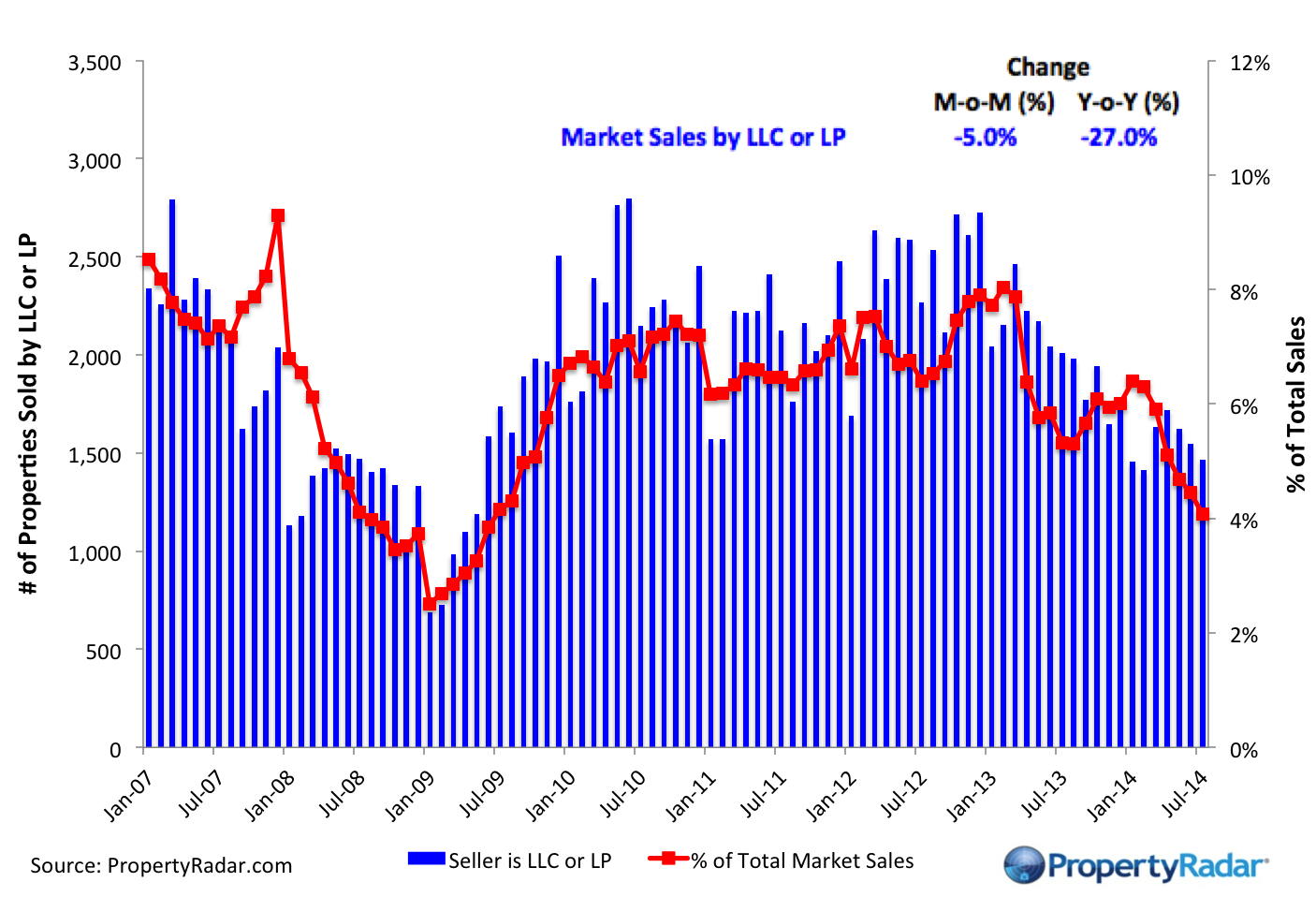
Market Sales by LLCs and LPs - The blue bars (right axis) illustrate market sales by LLCs and LPs of single-family residences and condominiums by month. The red line graph (left axis) illustrates sales as a percentage of total sales by month.
Trustee Sale Purchases by LLCs and LPs
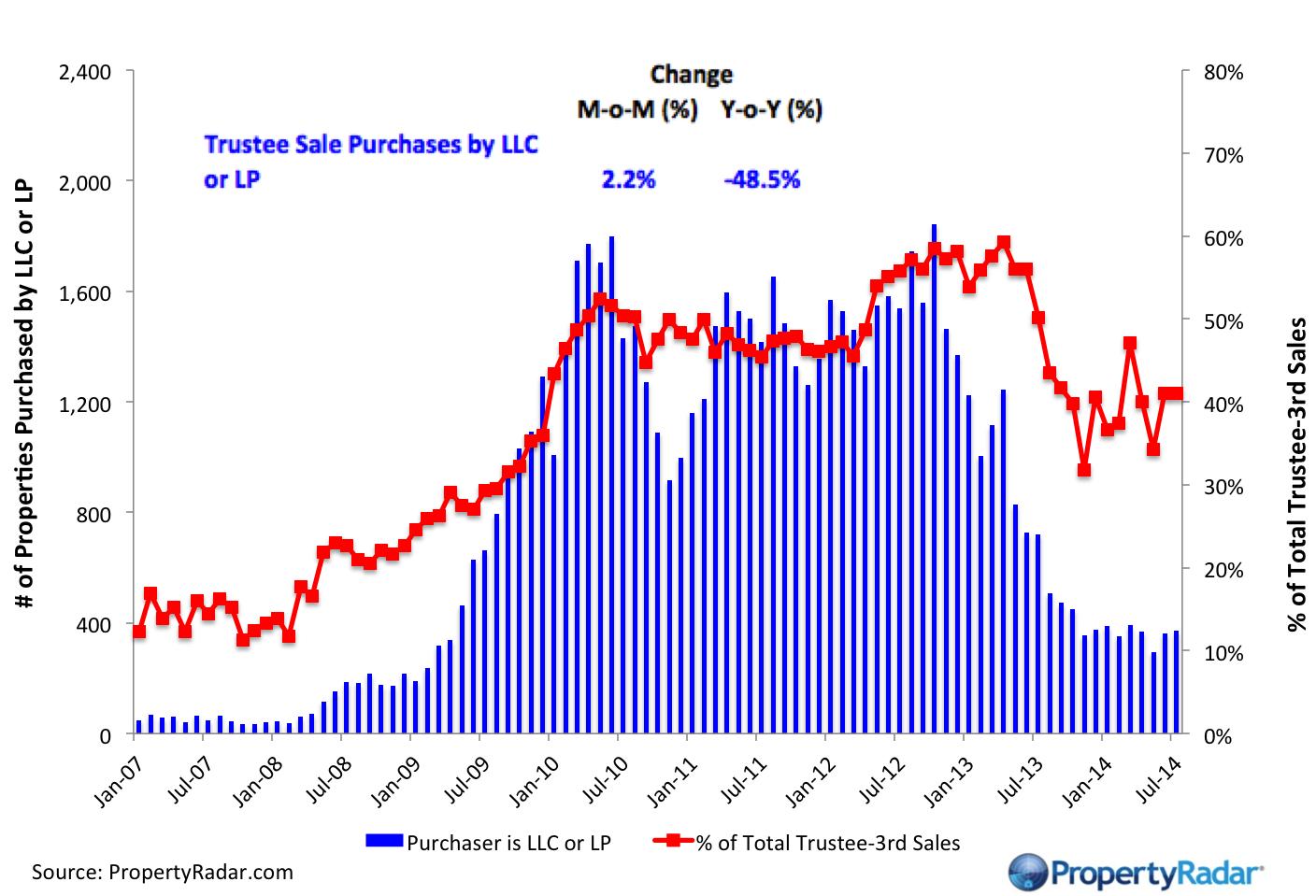
Trustee Sale Purchases by LLCs and LPs - The blue bars (right axis) illustrate trustee sale purchases (foreclosure sales) of single-family residences and condominiums by LLCs and LPs from 2007 to current. The red line graph (left axis) illustrates purchases as a percentage of total trustee sales by month.
Foreclosure Notices and Sales
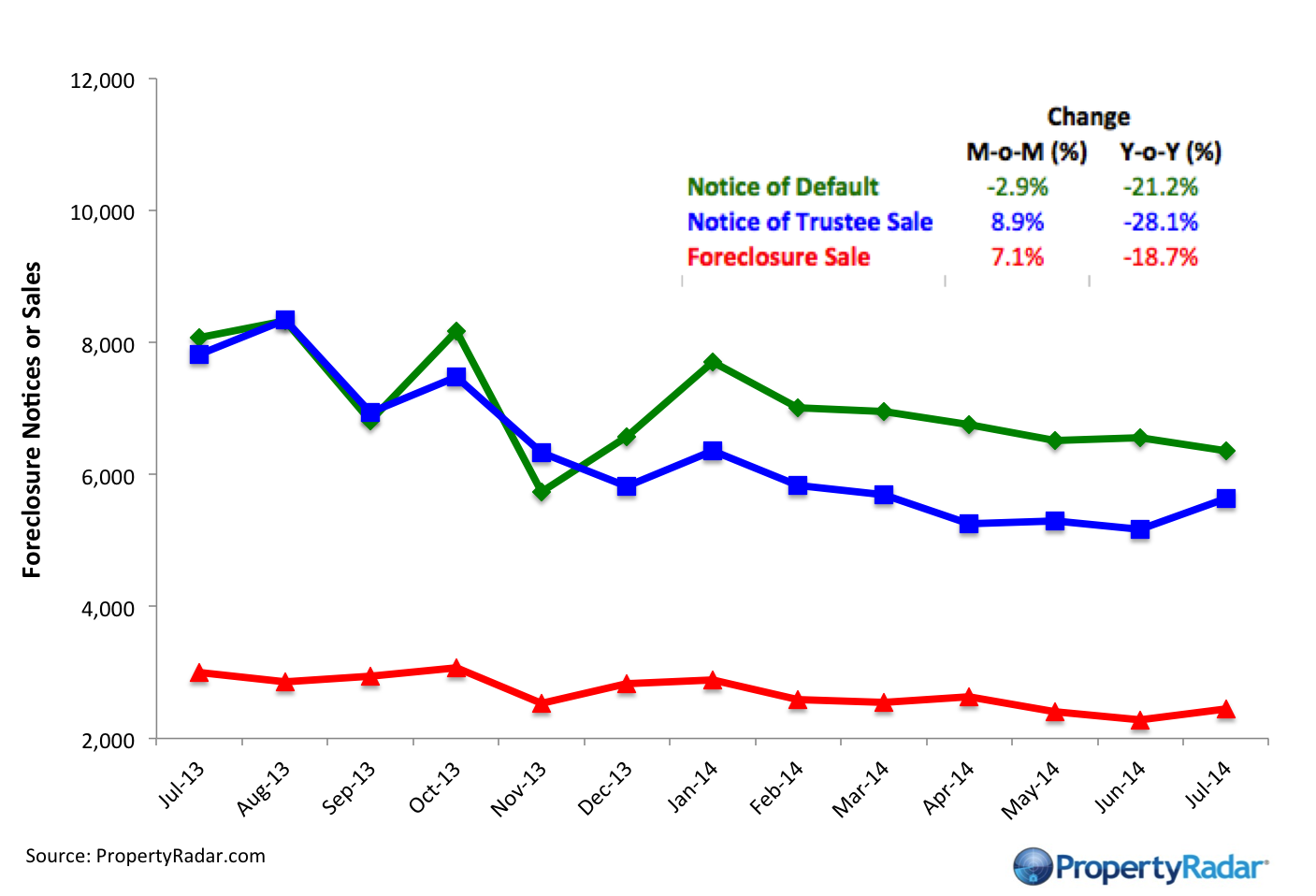
Foreclosure Notices and Sales - Properties that have received foreclosure notices — Notice of Default (green) or Notice of Trustee Sale (blue) — or have been sold at a foreclosure auction (red) by month.
Foreclosure Inventories
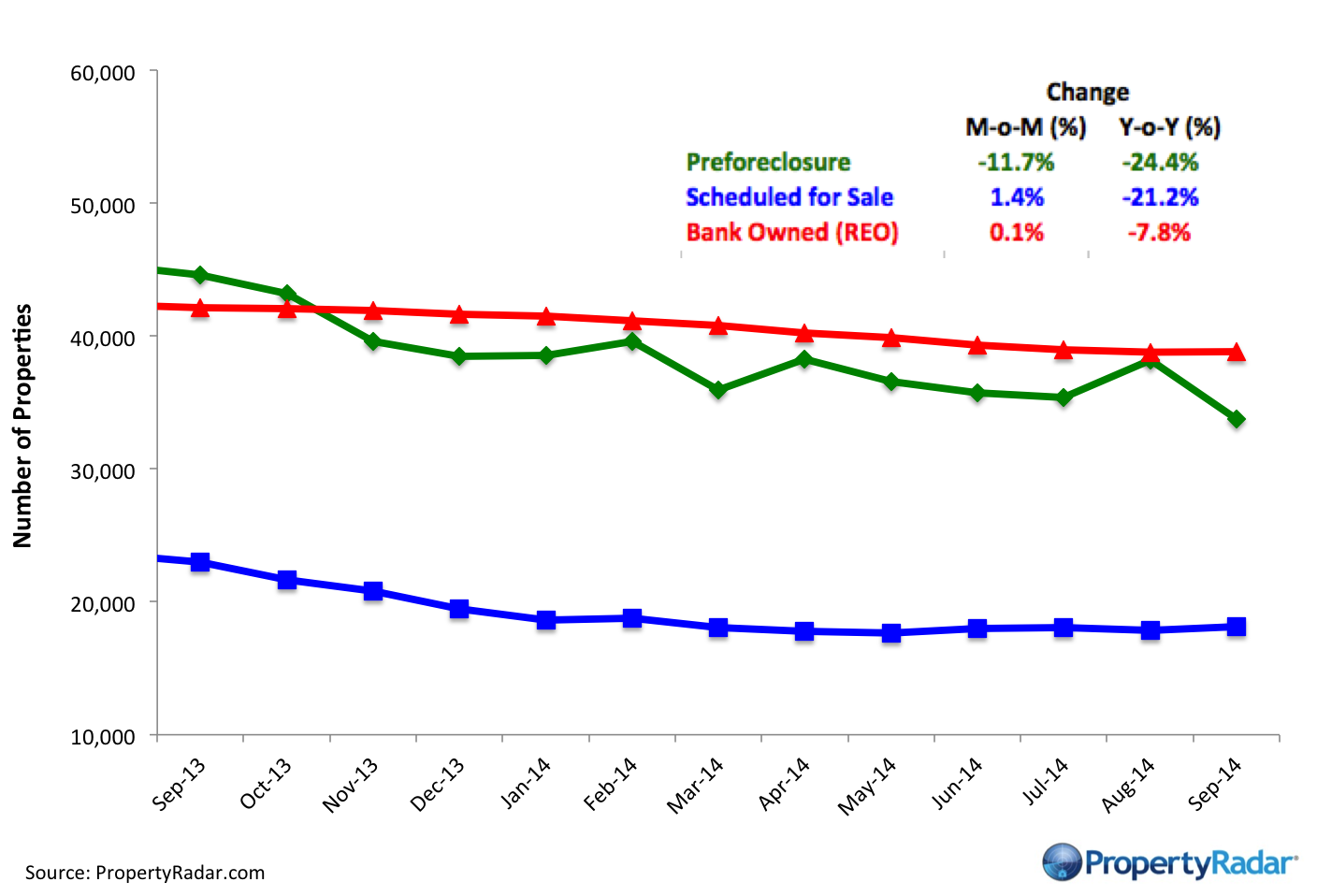
Foreclosure Inventory - Preforeclosure inventory estimates the number of properties that have had a Notice of Default filed against them but have not been Scheduled for Sale, by month. Scheduled for Sale inventory represents properties that have had a Notice of Trustee Sale filed but have not yet been sold or had the sale cancelled, by month. Bank-Owned (REO) inventory means properties sold Back to the Bank at the trustee sale and the bank has not resold to another party, by month.
Real Property Report Methodology
California real estate data presented by PropertyRadar, including analysis, charts, and graphs, is based upon public county records and daily trustee sale (foreclosure auction) results. Items are reported as of the date the event occurred or was recorded with the California county. If a county has not reported complete data by the publication date, we may estimate the missing data, though only if the missing data is believed to be 10 percent or less of all reported data.


